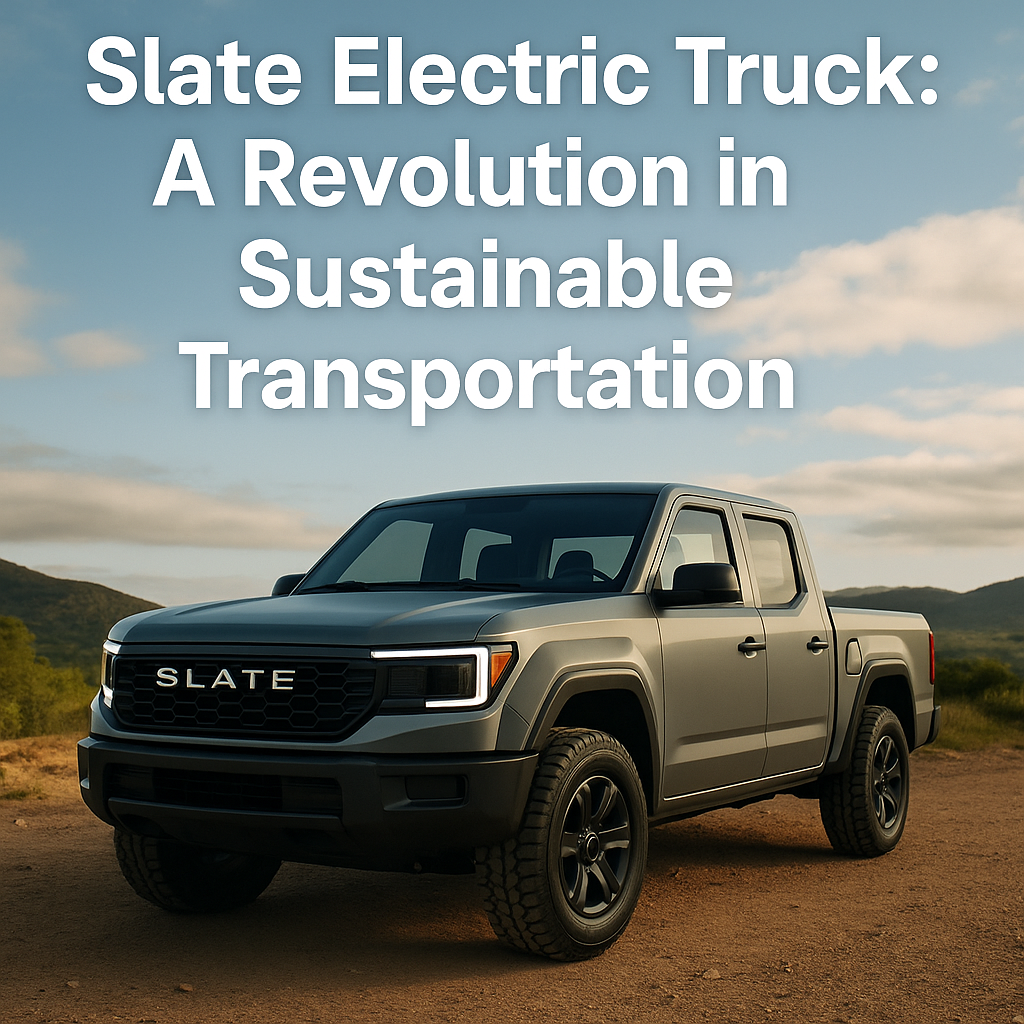The debate between electric trucks and gas-powered trucks is gaining traction as technology evolves and sustainability becomes a priority. One of the most crucial factors for pickup truck buyers, especially those using them for work or recreation, is towing capacity. But when comparing electric and gas trucks, which one truly comes out on top for towing?
In this article, we’ll break down the towing capabilities, power delivery, range, cost, and practicality of both truck types to help you make the best decision. Whether you’re towing a trailer, camper, or heavy equipment, understanding how these trucks perform under load is essential.
⚡ Electric Trucks and Their Towing Capabilities
Electric trucks such as the Ford F-150 Lightning, Rivian R1T, and Tesla Cybertruck are making waves in the auto industry. These EVs boast instant torque, quiet operation, and zero tailpipe emissions, but how do they handle towing?
✅ Pros of Electric Trucks for Towing:
-
Instant Torque:
EVs deliver full torque instantly, giving electric trucks exceptional off-the-line power and smooth acceleration, especially useful when pulling heavy loads. -
Low Center of Gravity:
The battery pack in electric trucks is typically mounted under the floor, improving stability and reducing trailer sway. -
Regenerative Braking:
EVs use regenerative braking to recapture energy, which can also aid in controlled descents when towing downhill. -
Advanced Towing Tech:
Electric trucks often come with sophisticated towing software, trailer assist modes, and real-time weight distribution analysis.
❌ Cons of Electric Trucks for Towing:
-
Range Reduction:
Towing significantly decreases an EV’s range. A truck like the Ford F-150 Lightning may see its range drop by 40–50% when towing a full load. -
Charging Infrastructure:
Fast-charging stations for trailers on long routes are still sparse, which could pose challenges on cross-country hauls. -
Longer Refueling Times:
Even with fast chargers, recharging takes longer than filling a gas tank, which can be inconvenient during extended towing trips.
⛽ Gas Trucks and Their Towing Capabilities
Gasoline-powered trucks have dominated the towing market for decades. Popular models like the Chevy Silverado 1500, Ford F-150 (gas variant), and RAM 1500 are trusted by contractors and weekend warriors alike.
✅ Pros of Gas Trucks for Towing:
-
Proven Performance:
Gas trucks have long-established reputations for towing, with powerful V6 and V8 engines offering high towing capacities. -
Fuel Availability:
Gas stations are everywhere, making it easy to refuel while towing long distances. -
Extended Range:
Gas trucks generally maintain their fuel efficiency more consistently than electric trucks under heavy loads. -
Lower Initial Cost:
Gas trucks usually have a lower starting price compared to electric models.
❌ Cons of Gas Trucks for Towing:
-
Less Torque at Low Speeds:
While gas engines are strong, they don’t match the instant torque delivery of electric motors. -
Higher Operating Costs:
Gas prices fluctuate and maintenance costs are typically higher due to engine complexity and oil changes. -
Environmental Impact:
Gas trucks emit CO₂ and other pollutants, making them less environmentally friendly than their electric counterparts.
🔍 Key Comparison Table: Electric vs Gas Trucks for Towing
| Feature | Electric Trucks | Gas Trucks |
|---|---|---|
| Towing Capacity | Up to 10,000 lbs (varies by model) | Up to 14,000+ lbs (varies by model) |
| Torque Delivery | Instant torque | Gradual torque |
| Range with Trailer | Significantly reduced | Moderate reduction |
| Refueling Time | 30–60 mins (fast charge) | 5–10 mins (gas fill-up) |
| Maintenance | Lower (fewer moving parts) | Higher (more engine upkeep) |
| Charging/Fueling Stations | Limited network, growing slowly | Widespread availability |
| Environmental Impact | Zero tailpipe emissions | High CO₂ emissions |
| Purchase Price | Higher upfront | Lower upfront |
🧠 Real-World Example: Ford Lightning vs Ford F-150 (Gas)
Let’s consider a direct comparison between the Ford F-150 Lightning (EV) and Ford F-150 3.5L EcoBoost (gas):
-
Ford F-150 Lightning
-
Towing Capacity: ~10,000 lbs
-
Range while towing: ~100–150 miles
-
Starting Price: ~$55,000
-
Fuel Cost: $0.10–$0.15 per mile
-
-
Ford F-150 EcoBoost (Gas)
-
Towing Capacity: ~14,000 lbs
-
Range while towing: ~300–400 miles
-
Starting Price: ~$45,000
-
Fuel Cost: $0.20–$0.30 per mile
-
💰 Cost of Ownership: Who Wins Long-Term?
While electric trucks cost more upfront, they typically save money over time due to:
-
Lower fuel costs
-
Fewer maintenance needs (no oil changes, fewer parts to break)
-
Potential tax credits and incentives
However, gas trucks may still be more practical for heavy-duty commercial use or frequent long-distance towing due to fueling speed and infrastructure.
🌎 Environmental Considerations
If sustainability is a priority, electric trucks are clearly the better option. They produce zero tailpipe emissions and contribute to reduced air pollution. Gas trucks, while improving in efficiency, still contribute to greenhouse gas emissions.
🚚 So, Which Truck Is Better for Towing?
It depends on your needs.
Choose an electric truck if:
-
You tow short to medium distances
-
You have access to fast chargers
-
Instant torque and tech features are important to you
-
You value lower emissions and long-term savings
Choose a gas truck if:
-
You tow long distances frequently
-
You require higher towing capacities
-
You want faster refueling
-
You need a lower upfront cost
🙋 Frequently Asked Questions (FAQs)
1. Can electric trucks tow as much as gas trucks?
Some electric trucks like the Rivian R1T and Ford F-150 Lightning can tow up to 10,000 lbs, but most gas trucks still lead in maximum towing capacity, often exceeding 14,000 lbs.
2. Does towing affect EV range significantly?
Yes. Towing can reduce an electric truck’s range by 40–50%, depending on weight, speed, and terrain.
3. Are there enough charging stations for electric trucks?
Charging infrastructure is growing, but still lags behind gas stations, particularly along rural or trailer-heavy routes.
4. Is maintenance easier for electric or gas trucks?
Electric trucks generally require less maintenance since they have fewer moving parts—no oil changes, spark plugs, or exhaust systems.
5. Which is more cost-effective in the long run?
Electric trucks may cost more upfront but offer savings in fuel and maintenance over time. Gas trucks might be cheaper to buy initially but may have higher ongoing expenses.
6. Do electric trucks support trailer brake controllers?
Yes, most new electric trucks come equipped with or support integrated trailer brake controllers, a must-have for safe towing.
Final Thoughts
The future of towing is evolving. While gas trucks are still the towing champions in many respects, electric trucks are closing the gap fast. If your towing needs align with the range and infrastructure available to EVs, an electric truck could be the smart, eco-conscious choice.
As always, consider your towing frequency, distance, and charging/fueling accessibility before making a purchase.


